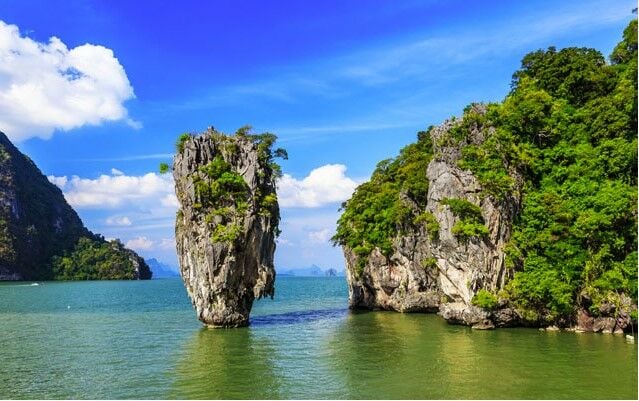European travellers send southern Thailand’s hotel rates soaring

Southern Thailand’s tourism industry is experiencing a seismic shift as European travellers drive hotel performance to unprecedented heights.
A recent report by the Bangkok Post reveals that tourists hailing from Russia, Scandinavia, and Germany are flocking to the region, enticed by its breathtaking natural landscapes, and significantly boosting occupancy rates to a staggering 90% or higher.
Pongsakorn Ketprapakorn, former president of Phang Nga Tourism Council, remarked that many hotels, especially in Khao Lak, are cashing in on this trend by commanding room rates ranging from 6,000 to 10,000 baht per night, surpassing the 2019 average of 5,000 baht.
Pongsakorn pointed out that despite the influx of Chinese tourists, who accounted for nearly a fifth of all arrivals last year, Phang Nga lacks the appeal for beach-centric and urban-seeking travellers, with the tourism sector contributing a modest 5 to 10% to the province’s economy.
Similarly, hotels in Krabi are reaping the benefits of extended stays by European visitors. Charintip Tiyaphorn, owner of Pimalai Resort and Spa in Koh Lanta, Krabi, disclosed that during the Lunar New Year holidays, Chinese tourists found themselves out of luck as 90% of rooms were already snagged by Europeans who had booked up to 180 days in advance.
This robust demand allowed Pimalai Resort and Spa to command rates exceeding 900 baht across all accommodation types.
However, despite the Thai government’s efforts to court Chinese tourists, flight shortages and the destination profile of Southern Thailand may have hindered potential growth in Chinese arrivals.
A spokesperson from the Krabi Tourism Association highlighted a dearth of direct flights from China to Krabi, noting that before Covid-19, the region boasted traffic from five Chinese cities. Freelance travel agent Lek Nawat echoed these sentiments, asserting that Chinese tourists still gravitate towards established hubs like Bangkok, Pattaya, and Phuket, where they feel more assured about exploring, reported TTG Asia.
“Chinese tourists remain cautious, especially towards lesser-known destinations, which raise concerns about activities, food, health and safety, and digital payment options. The importance of WeChat cannot be underestimated, and there’s a lack of demand for places deemed off the beaten path.”
Latest Thailand News
Follow The Thaiger on Google News:


























